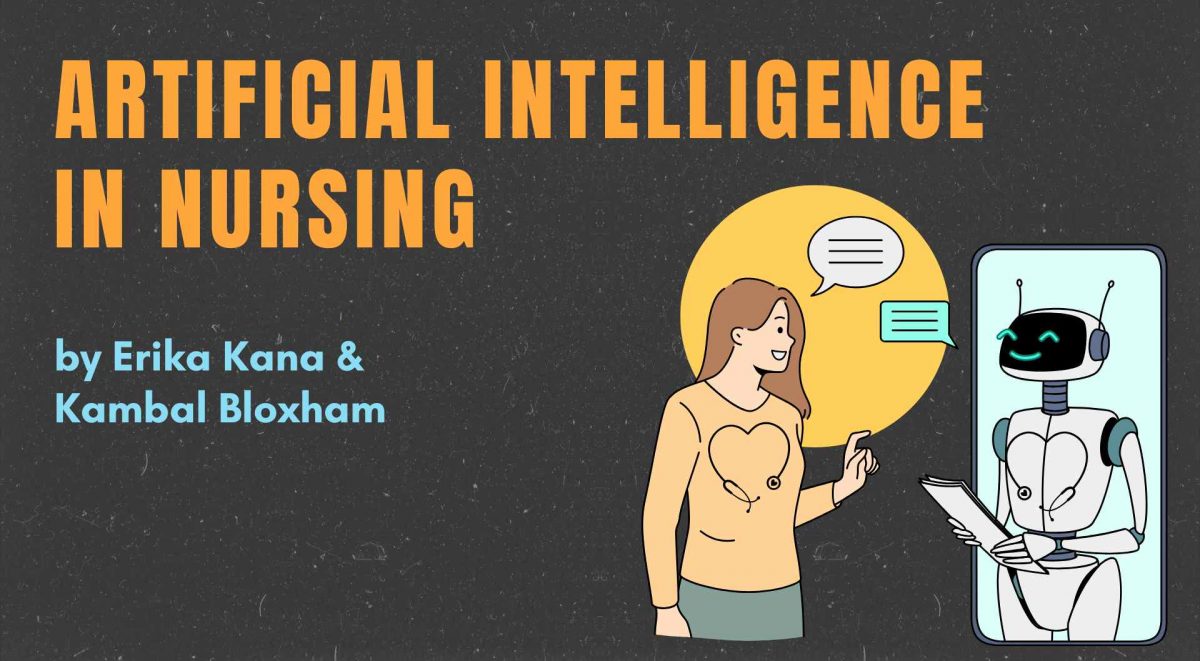
Artificial Intelligence in Nursing
Today, it is almost impossible to escape artificial intelligence (AI). From the smartphone in your pocket to your toothbrush, AI can take many forms. At its core, it is a sophisticated mathematical system designed to predict and assist in decision-making. The type of AI you most likely interact with every day is known as a large language model (LLM), such as ChatGPT and Gemini.
AI in Healthcare and Nursing
How does AI fit into the world of healthcare and nursing? For nurses, AI is a tool, not a replacement, so understanding this complicated new resource is essential. With policymakers and privacy experts voicing concerns around confidentiality, and every tech company promoting the limitless potential of AI, where does it fit into healthcare? Like many new technologies, the truth lies somewhere in the middle.
The Role of AI in Modern Nursing
Technologies, including AI, are tools available to nurses that, when used correctly, have a huge potential to improve patient care and reduce the burden on the healthcare system. AI is particularly well-equipped to analyze vast amounts of information and synthesize it into a form that can be applied in clinical practice. This represents a significant benefit to nurse researchers, allowing them to address larger, more complex questions and analyze more extensive datasets.
Beyond research, AI can benefit nurses, patients, and families in clinical settings. Because these systems can be trained to perform analytical tasks, we are seeing AI beginning to be used to detect changes in patient health. In the US, UK and Canada, AI is already being implemented in long-term care, home care, and acute care settings. In these environments, the AI augments the care being provided by recognizing health changes, identifying possible diagnoses, and in some cases, even providing care recommendations.
Challenges & Ethical Considerations
Though AI could have substantial and potentially revolutionary impacts on the healthcare system, there are concerns and many unanswered questions. One of the most significant concerns to both patients and healthcare providers is regarding confidentiality. Once information is sent to an AI provider it is not known who will see the information, and its confidentiality can not be assured. For this reason, Alberta Health Services directed its staff not to load any confidential information onto an LLM.
There are also ethical implications. Computer programs are made by people and therefore are subject to the same biases and information limitations as their creator. Due to disparities in underrepresented populations, the data sets used to train AI may lack adequate data to accurately be used for all populations, resulting in inaccurate and misleading results. Like with any tool in health care, we must use it in the context of the full clinical picture.
The Future of AI in Nursing
The field of AI is constantly evolving. Some of the areas where AI is already or likely to have a major impact include:
- Personalized medicine: AI can be used to analyze patient data and develop personalized treatment plans.
- Preventive care: AI can be used to identify patients who are at risk for developing certain conditions. This could allow nurses to intervene early and prevent these conditions from developing.
- Remote patient monitoring: AI can be used to monitor patients remotely. This could allow nurses to provide care to patients who live in rural areas or who have difficulty travelling to see a doctor.
- Drug discovery and development: AI can be used to accelerate the drug discovery and development process. We are already starting to see this. Google has released an AI tool to aid researchers in molding the behaviour of proteins, improving pharmaceutical research.
- Develop new and innovative nursing education programs: This could include higher fidelity simulation experiences for students.
Conclusion: The Future of AI in Nursing
The integration of cutting-edge and unfamiliar technology is nothing new to nurses. When electronic medical records (EMR) were introduced, many of the same benefits and concerns were raised. Today, there are few healthcare settings without EMRs.
AI presents a similar cycle where nurses will play a critical role in the responsible integration of AI into the best practices of caring for patients. To ensure nurses continue to provide the best possible care and responsibly use the tools at our disposal, it’s crucial to understand this emerging technology.
These are a few additional resources to provide a deeper understanding of the integration of AI into healthcare:
- Artificial intelligence in healthcare: transforming the practice of medicine
- Artificial Intelligence in Nursing: Technological Benefits to Nurse’s Mental Health and Patient Care Quality
- AI in healthcare: The future of patient care and health management
- What is artificial intelligence (AI)?
Authors
Erika Kana (RN) & Kambal Bloxham (RN).
Erika is located in Calgary, Alberta. For the past two years, she’s been specializing in emergency medicine. In her free time, she enjoys hiking, playing with her dog, and writing health content.
Kambal is an RN based in Calgary, Alberta, specializing in pediatrics and wilderness medicine. Passionate about technology, the outdoors, and photography, Kambal spends his free time exploring the mountains with his camera or volunteering to provide IT support for local organizations.
